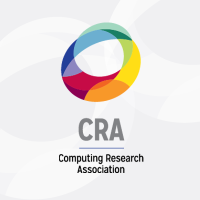
2017 Election Committee’s Slate of Nominees for the CRA Board Announced and Petition Nominees Sought
CRA is pleased to announce the 2017 Election Committee’s slate of nominees for the CRA Board. CRA also encourages nominations by petition.

Published: January 2017, Issue: Vol. 29/No.1, Download as PDF
Archive of articles published in the January 2017, Vol. 29/No.1 issue.

CRA is pleased to announce the 2017 Election Committee’s slate of nominees for the CRA Board. CRA also encourages nominations by petition.
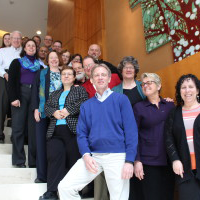
The Computing Community Consortium (CCC) is charged with catalyzing and empowering the U.S. computing research community to articulate and advance major research directions for the field. To do so, the CCC needs truly visionary leaders — people with great ideas, sound judgment, and the willingness to work hard to see things to completion. Please help the computing community by nominating such people for the Council.
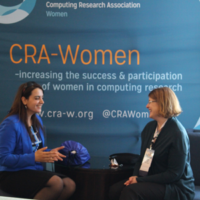
CRA-W’s mission is to increase the success and participation of women in computing research and education at all levels. There are several ways you can get involved such as mentoring students, submitting proposals, and sharing these opportunities with your colleagues and students.
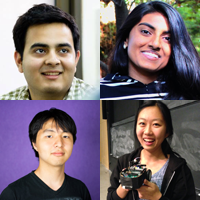
This year’s nominees are a very impressive group. A number of them were commended for making significant contributions to more than one research project, several are authors or coauthors on multiple papers, others have made presentations at major conferences, and some have produced software artifacts that were in widespread use.
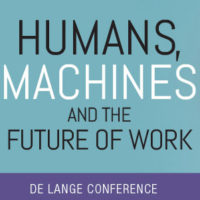
CRA recently was a sponsor and participated in the De Lange Conference on Humans, Machines, and the Future of Work, which focused on the impact of the amazing technologies being developed by the computing research community on the nature of work and employment. The conference was held at Rice University with primary funding from the De Lange Conference Fund at Rice, which brings top experts and major figures to its campus in order to focus on a topic of great concern to society. Videos of the event have been posted here.
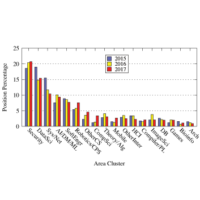
The wealth of faculty searches in Computer Science during this hiring season for positions starting in 2017 again affords the opportunity to study areas of Computer Science where departments are choosing to invest in new faculty hires. While the number and areas for faculty searches does not necessarily translate into the same for faculty hires, we believe that they provide insight into current and future needs within the discipline.

The 2016 Grace Hopper Celebration of Women in Computing (GHC) was held October 19-21, 2016, at the George R. Brown Convention Center in Houston, Texas and broke last year’s attendance record with over 15,000 participants this year. For the 8th year in a row, CRA-W presented career mentoring content for GHC attendees interested in research. CRA-W Board Member Tracy Camp (Colorado School of Mines) designed this year’s program, organizing the mentoring program into three tracks for early-career academic researchers, graduate students, and undergraduates. Brand new for 2016 was the CRA-W GHC Undergraduate Research Scholars Program, spearheaded by CRA-W Co-Chair Nancy Amato (Texas A&M University) and CRA-W Board Member Andrea Danyluk (Williams College), which provided funding for undergraduates to attend the conference, and guidance for finding and navigating the research content at GHC.
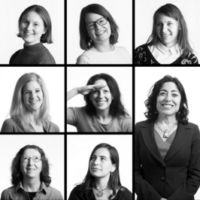
On the Microsoft Blog, 17 outstanding researchers from all parts of computer science share their vision of how computational thinking will transform our world in the next year and the next decade. Computer technology has delivered capabilities and benefits that were unimaginable 20 years ago – read about the deep insights these researchers have on how it will transform our world in the next 10 years.
Check out a few highlights, including one from CRA Board Member Kathryn S. McKinley.
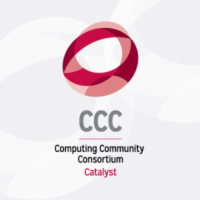
In June 2016, I blogged about the successful Architecture 2030 Visioning Workshop, organized by Luis Ceze of the University of Washington and Thomas Wenisch of the University of Michigan, and partially sponsored by the Computing Community Consortium (CCC) in conjunction with ISCA’16 in Seoul, South Korea. Recently CCC released the final report Arch2030: A Vision of Computer Architecture Research over the Next 15 Years with the endorsement of more forty research leaders in the field. Key findings are in this article.
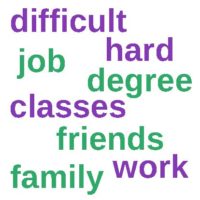
In CERP’s 2015 Data Buddies survey, computing majors were asked whether they had thought about changing to a non-computing major during the past year. Thirteen percent of students who responded to this question said that they had. The word clouds here were created using students’ comments about the reasons they considered leaving computing and factors that helped them stay. Some of the most frequently encountered words in students’ reasons for considering leaving computing were “classes”, “hard”, “difficult”, “work”, and “time”. On the other hand, students’ responses regarding the factors that helped them stay in computing contained words such as “job”, “degree”, and “friends”.
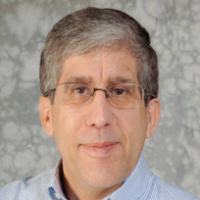
My research is concerned with understanding and facilitating the lifecycle of cognitive software, which is substantially different than that of conventional software. This difference has profound implications for the methodology and tools required to build such software. Cognitive software includes at least one “cognitive” or “intelligent” component, such as a component implemented using machine learning, neural networks, or rules. Often multiple cognitive components will be involved in a cognitive application or service, but even just one is enough to impart special and challenging complications.
This website uses cookies so that we can provide you with the best user experience possible. Cookie information is stored in your browser and performs functions such as recognising you when you return to our website and helping our team to understand which sections of the website you find most interesting and useful. You can adjust all of your cookie settings.
